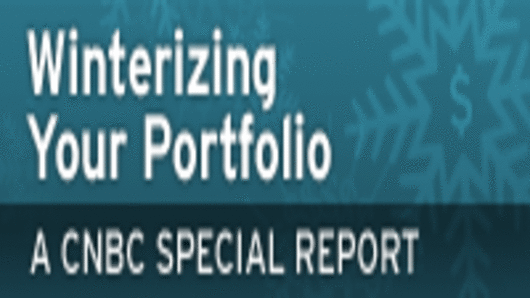What happens in Dubai may stay in Dubai—for now, at least. But with credit problems surfacing in other countries such as Spain, Germany, Iceland and Greece, US investors are concerned that those problems could soon hit closer to home.
That worry has led to low-volume, flat trading in stocks in recent days—and, in fact, over the past few months.
While the portfolios of most retail investors aren't directly affected by credit concerns in other countries, such tremors help serve as a reminder that the credit crisis isn't as far in the rearview mirror as some investors would like.
The result has been a newfound caution among investors following the explosive stock rally in 2009.
"You could say maybe Dubai isn't the rationale behind it, but it's a shot across the bow," says Gary Flam, portfolio manager with Bel Air Investment Advisors in Los Angeles.
Market pros have been picking up on the theme of safety in the market, pushing telecomms and utilities into leadership positions and financials into the background over past two months, during which the Dow has moved little after regaining the 10,000 threshold.
Some also see the dollar-yen carry trade unwinding as investors turn their attention again to the greenback as a safety play following its steep decline.
"It won't take a lot of bad news until consumers remember how bad things were a year ago and get scared in a hurry," Flam says. "There still is risk in the marketplace."
As more bad news emerges and ratings agencies warn about credit conditions in various countries, the market will be weighed down by fears that the credit meltdown isn't over.
"What it does is it makes you more cautious and you wait until it plays out. You go into the sidelines and you go into cash," says Quincy Krosby, general market strategist at Prudential Financial. "The notion that (the global credit problems are) contained doesn't have much resonance, because everyone remembers they heard that subprime was contained and they know how that played out."
Both Krosby and Flam join the ranks of investment advisors who are guiding their clients into large-cap market leaders with cash on hand and healthy dividends.
While that may sound rather obvious, such companies have been market laggards during a rally that has seen the greatest movement from stocks that took the worst beating during the credit crisis.
That's a trend that could unwind as investors once turn their focus from value to fundamentals.
"For long-term investors, ones who are not monitoring the market day by day, we're still advocating positions in companies that are solid, good balance sheets, dividends. Enjoy the best of breed in the their sectors," Krosby says. "This is where we start to make the transition where fundamentals matter."
To be sure, there remains some disagreement about where the US dollar will fit into the trend toward safety.
While some market pros see the greenback as a natural alternative to global turmoil, Todd Hanson, head of forex trading at Team Trading, says investors should avoid the US currency until the Federal Reserve changes course on interest rates.
"Because of US monetary policy right now with low interest rates, people are getting rid of their dollars," said Hanson, who recommends the Australian dollar and the New Zealand kiwi. "Until the monetary policy changes significantly ... in the short term we're going to see the dollar get crushed."
Be that as it may, there seems to be little disagreement over the desire for safety.
Dave Rovelli, head of US equity trading for Canaccord Adams, said on CNBC that weak volume and problems in places such as Spain have him looking at large-cap dividend-paying companies such as McDonald's and Procter & Gamble to park money until the storm clears.
"No one's buying stocks," he said. "Everybody talks about (the credit problems). There's no bids out there, no one's initiating new positions."
At the same time, there are few predictions that the market is ready for a sharp leg down—"this doesn't mean the market won't go up," Krosby says.
But the global issues in Dubai and elsewhere have been enough to chase investors away and perhaps keep the market in a rigid zone until investors get some signs that the US isn't in for another version of its own credit meltdown.
"From a very broad perspective, a lot of the underlying causes of the turmoil over the past two years have not been dealt with," Bel Air's Flam says. "We've helped alleviate the symptoms of the disease but we have not addressed curing the disease. The US economy has not shown that it can stand on its own two feet."




